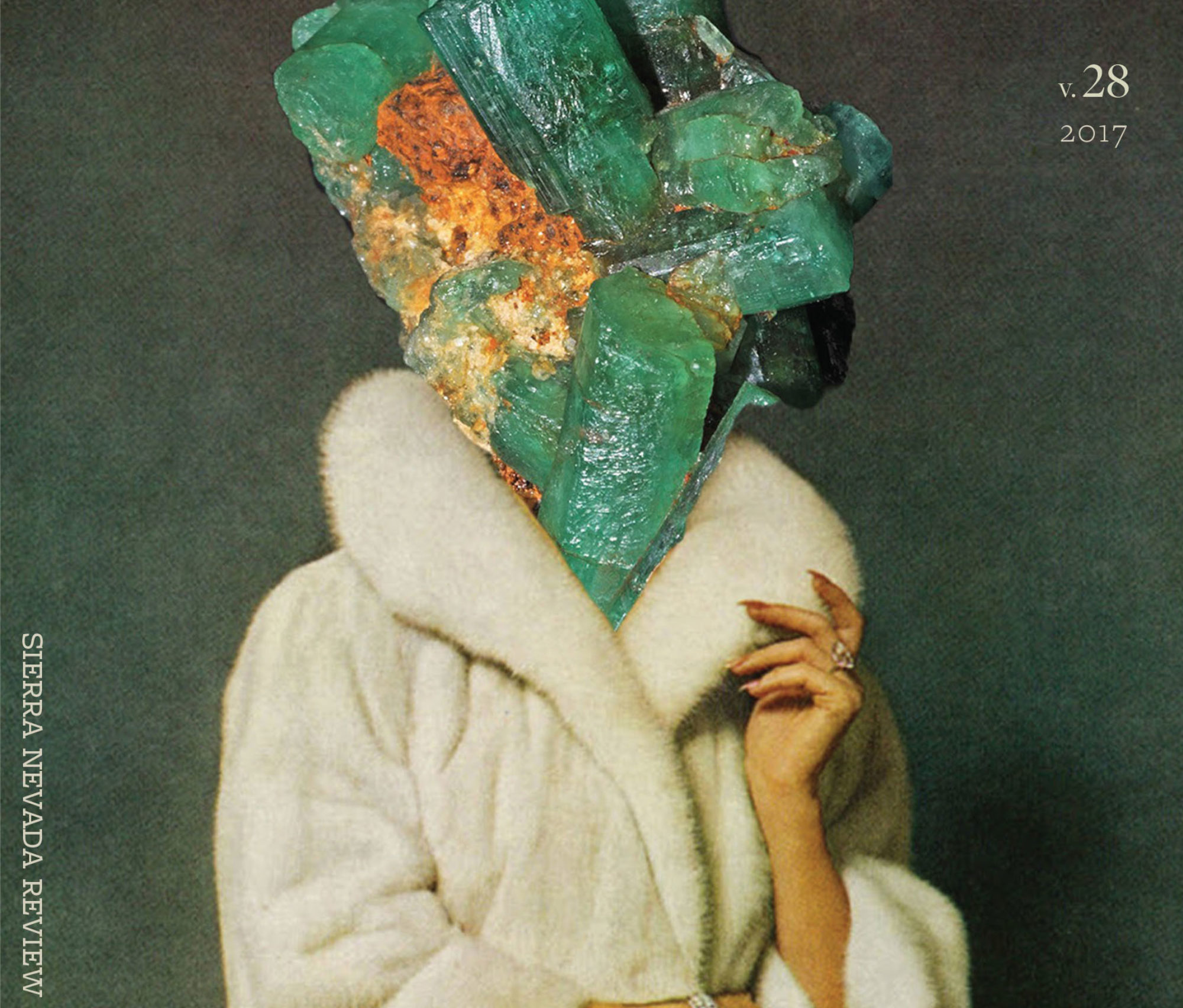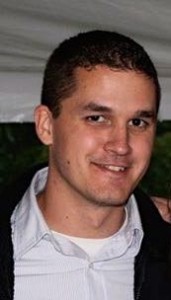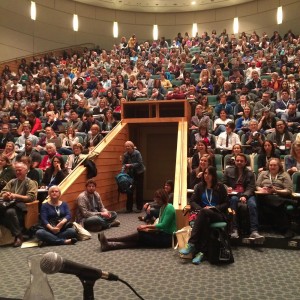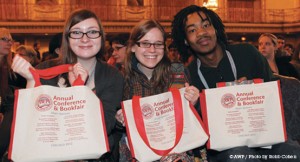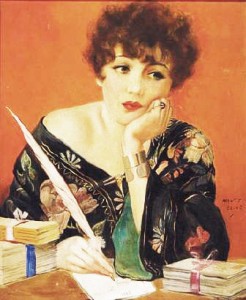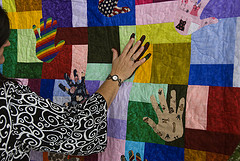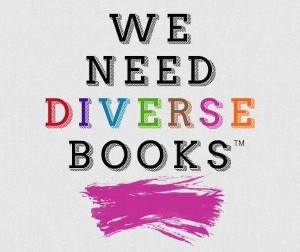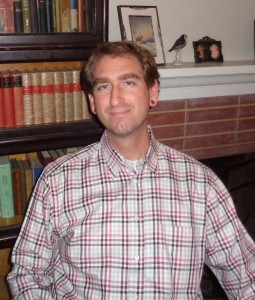 Derek Updegraff’s short story, “Thursday Morning at A. R. Valentien,” was published in the 2015 edition of the Sierra Nevada Review. The story follows Greg, a middle-aged busboy frustrated with his life, who has a fraught and enlightening experience while waiting on country superstar Reba McEntire.
Derek Updegraff’s short story, “Thursday Morning at A. R. Valentien,” was published in the 2015 edition of the Sierra Nevada Review. The story follows Greg, a middle-aged busboy frustrated with his life, who has a fraught and enlightening experience while waiting on country superstar Reba McEntire.
In addition to the Sierra Nevada Review, Derek Updegraff’s short stories have appeared or are forthcoming in Bayou Magazine, Rosebud, Chiron Review, Posit, and other journals. His poems and translations have appeared in Natural Bridge, The Lyric, The Classical Outlook, Saint Katherine Review, Metamorphoses, and elsewhere, and his articles on Old English language and literature have appeared in Oral Tradition and Texas Studies in Literature and Language. He is the author of three chapbooks of poetry, and in the spring of 2016 his novelette Into the Ends of the World will be published by Blue Cubicle Press in the Overtime single-story chapbook series.
He holds BA and MFA degrees from Cal State Long Beach and MA and PhD degrees from the University of Missouri. He is currently an Assistant Professor of English at California Baptist University and lives in Riverside with his wife and two daughters.
Brandon Dudley: To start off, I wondered if you could talk a little bit about what inspired your story. Does the spark of a story tend to start with ideas, themes, images, or is it something else entirely?
Derek Updegraff: Well, with this story the thing that triggered it was the setting. I worked at the restaurant in this story as a busboy when I was in my mid-twenties. I had an MFA, and I was newly married, and I was doing the adjunct circuit, teaching mostly at San Diego Mesa College but also at UC San Diego, but adjuncts rarely get summer classes, and so I would take on odd jobs in the summers, one summer at Barnes and Noble, one summer at the restaurant in this story, and so on, until I went to grad school again to break the cycle. So I knew the atmosphere of this setting well, the dining area of the restaurant as well as the inner-workings of the kitchen and the hotel it is connected to, and I always knew it was a great setting for a story, but I didn’t know what the story would be or when I would write it. As it turned out, I waited almost ten years until I dipped into the memory of that space. The characters came next, but the space led the whole thing into existence. And the second question you ask is a good one. Do we as writers begin a story with an idea, a theme, an image, and so on, and for different stories we might have different types of starting places, but as I look back on my other short stories, I would have to say that I tend to begin with the concrete rather than the abstract. I don’t worry over theme much, especially at the early drafting stages, and I usually start a story because of some tangible, sensory detail, whether it is a setting I’m intrigued by, a bit of dialogue I overheard that plays over in my mind and calls for expansion, or any image or experience that sticks with me and wants to be explored more fully in a story, even if its particular use is not yet clear to me.
BD: Your main character has this very moving scene in the restaurant with, of all people, Reba McEntire. Why did you choose Reba?
DU: I don’t remember if I was a few paragraphs into the story or a few pages in, but at some early point in the drafting process, I realized that the busboy character—Greg—needed to be middle-aged and not in his early or mid-twenties, and I knew that the minor conflict of his feeling demeaned by his job could carry the story only so far. So I started thinking about situations that I could drop Greg in that would bring about the crisis, and I think I always knew that an encounter with a customer was inevitable. And as I was mulling over possible scenes, it occurred to me that this was not just any environment. This was a restaurant attached to a pretty impressive hotel in an exclusive area of San Diego, and in the time I worked there I saw a handful of celebrities dining even though I never served them or talked to them. And the staff would tell stories of the different celebrities who had frequented the place. Tiger Woods was a regular because the hotel is right there at the golf course. At any rate, I figured out that Greg needed to have an interaction with a celebrity, and I made a list of names of the people I had seen there for myself and the people I had heard were once there, and then I added a few inventions of my own. The person who stood out on that list was Reba. Perhaps because she was one of the individuals I really saw in the place but never talked to. But more than that she seemed like the perfect choice. She’s not an obvious choice. Hers is a subtle but consistent fame. Not over the top. And she seems to me to be the kind of person who really would have responded to Greg in a sweet manner. I have no idea what she’s like in person, but she seems like she’d be sweet, doesn’t she? So I thought about the list for a day or two. I wrote this story during a semester when I was teaching a lot, and there were often days between the drafting. And after she emerged as the front runner, I returned to the writing knowing that Greg would meet her. Then she helped characterize Greg, helped fill out his backstory. He needed to have his adolescent fantasies. She needed to be someone he respected and admired but has not thought about in many years. She was able to fill that need. She was a gift, really.
BD: One of my favorite aspects of the scene with Reba was the way you increased the tempo of your sentences. The increased rhythm helped created this palpable sense of desperation and urgency within the encounter. It felt very poetic, really, and so it wasn’t a surprise to then find out that you are also a poet. I wondered if you could comment on the two forms and how they influence your writing? How does poetry influence your fiction and vice versa?
DU: I’m glad you appreciated those sentences. That long paragraph before the final break at the end is probably my favorite section in the piece. I wrote the sentences quickly in the first draft, and I’m usually a fairly slow writer, and then I went back and added, deleted, and changed things only as clarity and sharpness dictated, not wanting to undo the original impulse. The rhythm was a product of me genuinely sympathizing with Greg there in that moment, when his body is frozen and his mind is racing, certainly a more subjective moment than the evenness of much of the third-person-limited blanketing the story. And I’m glad you called it poetic. I was certainly aiming for quick continuation—I think often times the word “and” is the best word we have as writers—but the rhythm created by the language, by the relatively even distribution of stresses or strong sounds amid unstressed lighter sounds, does have something to do with my background in poetry writing. For me, sound is an important aspect of every mode of writing. It doesn’t matter if I’m writing a poem or a short story. If I’m not reading aloud in the middle of composing, I am certainly always reading aloud once a draft exists. Over and over. Even prose paragraphs. I read them aloud multiple times to make sure everything sounds right. The importance of sound was impressed on me when I was an undergraduate studying with Gerald Locklin in Long Beach. He taught form and meter even though he mostly moved away from them after his early writing, but he made his students write villanelles and sonnets and other forms, just as he had been made to, and he helped me hear iambic and trochaic rhythms, and anapestic and dactylic rhythms, rather than just seeing them through scansion and lifeless notation. I stayed at Long Beach for my MFA in fiction, and during that time my writing world centered on learning the craft of the short story, but I continued to study poetry with Gerry in those years, formally and informally, and then when I was at Missouri I was once again surrounded with tremendous writers who helped me in various ways, but I was also immersing myself in linguistics and early medieval literature courses, two areas which had been of tangential interest to me as an undergrad and MFA student. We can’t be experts in everything, every genre or time period, but we do need to read a lot and have a general sense of all that’s come before as well as what’s being written today, and then we need to delve into some of those spots, and where exactly we’re jumping in is going to influence our understanding of craft and help shape our individual styles. For me, the study of language became important, as did the history of meters and developments of sounds in English. And not just sounds but internal structures. In that scene with Reba, there is at least one moment of chiasmus, as well as other types of parallelism. The chiasmus I’m thinking about is: “and while he was staring at Reba, and while Reba was staring at him.” And in the moment when I was first drafting that lengthy paragraph, I don’t remember actively thinking, Hey, that’s neat; there’s chiasmus. But I do remember finding it as I reread what I’d written, and I was delighted to see it there, and to hear it there. So certainly that awareness of and appreciation of sound and structural conventions in poetry and in language generally has had an influence on my prose. And as far as fiction having an influence on my poetry, I think that’s there too. I remember being in a poetry workshop in Scott Cairns’s office with a handful of other grad students, and we were all just getting to know each other’s work. And after about the second or third round of workshopping, someone commented on my poems often having a clear narrative focus. And that’s true though I don’t think I knew I was relying on it so heavily. The poems I like the best have crisp, concrete details in them and avoid abstractions, and often times they tell a story, whether directly or implicitly. In my own poems I frequently employ dialogue and write in the third person. I don’t do it all the time now, but occasionally my poems are simply very short stories in verse.
BD: I’ve seen that you also translate work from Old English, Middle English and Latin. What sparked your interest in that field, and how has working in translation affected your own work?
DU: Well, there are a lot of things I could say about all of that, but I’ll try not to carry on for too long. My dad is a classicist and has taught Latin and Greek at the same private high school for over forty years. He had planned on becoming a professor. He went to Oberlin and Stanford and then in his mid-twenties took a job at a high school that he thought would be a temporary job, something that might last for a few years before he moved on to something better. But he fell in love with the place and has stayed there for his whole career, and I was able to attend the school on scholarship as a teacher’s son. I started taking Latin in seventh grade, and I just hated it. I stuck with Latin throughout high school and had my dad as my A.P. teacher, but in those years I was not an ideal student. At some point in high school I remember getting into writing, though it was a lesser interest than what it would become for me in college, but I didn’t yet have an interest in studying languages. I’ve always loved and admired my dad, but Latin was his thing, and as a teenage boy I didn’t want my dad’s thing to be my thing. As I was growing up, people would always ask me if I was going to be a teacher like my dad. And the answer was always “no” when I was a kid, and here I am now, a teacher who loves teaching, a teacher who has also been teaching since his mid-twenties. And the truth is that I did grow to love literature in my adolescent years, even though I writhed a bit within the institutional structure that is school. And so as I began to take writing and the study of literature seriously in my late teens and early twenties as an undergrad, and then as an MFA student, and eventually as a PhD student in my late twenties, I found myself choosing to take courses in classical and medieval Latin, and I was reading Catullus and Horace and Ovid and others again, in the Latin, and loving it and thinking to myself, How could I have not loved this stuff earlier. What was wrong with me? And I probably realized that to be a writer meant to understand language, and then what had been boring to me before—declensions and conjugations and structural principles—became really fascinating stuff because it gave me insights into what language really is. I don’t think people can really understand their own native language until they have studied at least one or two others in depth. In the fourth grade I became fluent in Spanish because my family lived outside of Madrid for a year, and that’s another story for another time, but I forgot all of my Spanish within a year or two of being back in the States from lack of use, and I don’t have many memories of learning or studying Spanish. I just learned it as kids so easily do. But as an adult I really came to know English well because I was studying other languages, because I was learning Old English and Middle English, and some Old Norse and German, though the latter was for reading comprehension only. As of today, I can’t speak a second living language, and I’m a little embarrassed by that since I was bilingual at one point in elementary school, but I do love working with dead languages, especially Old English. I had my first course in Old English as an MFA student, and I took it because I needed to get to sixty units and I remembered liking Beowulf well enough in translation as an undergrad. Not to go on and on, but I was instantly hooked, by the language, the seemingly loose but actually complex meter, the subject matter, everything. Many of my favorite poems are in Old English. And there are great prose pieces too. Saints’ lives. Homilies. Really beautiful, interesting works. I ended up writing my dissertation on some of the works by the monk and homilist Aelfric of Eynsham. And one of my in-process book projects is a series of translations of his saints’ lives, though that book is moving along very slowly at the moment due to time constraints. But there’s a real need for updated translations. There are plenty of Old English texts that have not been translated into present-day English or are available only in outdated translations. Many of Aelfric’s saints’ lives, for example, have not appeared in translation since the 1800s. I have a new translation and edition of his Life of St. George coming out in a journal this fall, and as time permits I’ll keep chipping away at producing more. And to get to the second part of your question, I would say that for me all the modes I write in influence each other, as I said earlier with fiction and poetry, and I consider translation to be its own mode too, as Walter Benjamin claimed it to be, because often what happens when we translate is the pushing through of our own ideas, emotions, experiences, and so on, even though they are navigated through, or maybe sprung from, the work of someone else. But we do get into a gray area here, and some people like the safer word “adaptation” when a new work seems to have emerged from the old one, but I still prefer “translation” in those looser cases because a translation is always a new work—it’s never the same work—but there are certainly a lot of ways to handle the source text, so the translator’s intention then remains a valid thing to keep in mind. For me, when I translate Aelfric, I like to think there is more Aelfric in there than Updegraff because I want to pass along Aelfric to others, even though they’re also getting a bit of me, of my diction, and so on, since language is always idiomatic, but then in some of my translations of Catullus, for example, people get more Updegraff than Catullus, and that’s because the love interest in his poem becomes the love interest in my real life, and his places and situations are turned into my places and situations, and I don’t worry about such things then as the difference between the speaker and the poet because that distinction isn’t important in all lyrics and is a relatively recent obsession within the history of lyric poetry, so what we had—for me—was Catullus the poet and then what we get is Updegraff the poet as standing in or leaping from the moment first expressed by Catullus. The final thing I have to say about working in translation has to do with reading for craft, which is something all serious writers have learned to do and is something I try to teach my creative writing students. Although there is always some overlap, I teach works differently in a creative writing classroom than I do in a literature classroom, and I ask my creative writing students to learn to read as writers do. Well, the translator reads with the same slowness and structural appreciation as the writer should. Most writers read other writers with an eye toward craft and the functioning parts of the whole, and we listen with an ear toward craft, and while we’re attending to the pieces, we set meaning on the shelf—that illusive and debatable thing—at least in the beginning. The best literature professors and critics read this way too, of course, but many readers focus on information and content, or their own pleasure, and while those things have their importance, the translator is forced to contend with craft in a very intimate way, and the serious writer also learns to do this at some point in his or her career.
BD: It sounds like your father was a major influence on your writing life. Who else would you consider influences?
DU: Yeah, he was and still is. And I mentioned Gerald Locklin and Scott Cairns earlier, and really all the writers I had my fiction and poetry workshops with, folks like Aliki Barnstone, Rafael Zepeda, Stephen Cooper, Suzanne Greenberg, and Charles Harper Webb. I would read all their books and learn from them as writers and teachers, and of course often their influential people would become my influential people, as it happened with John Fante, whom I might not have ever read if it weren’t for Steve Cooper and all he has done through the years to promote Fante’s work. Raymond Carver and Tobias Wolff might be the writers who have most shaped my fiction. Many other names come to mind, like Aimee Bender and George Saunders, but I think Carver and Wolff have taught me more about the short story than anyone else. And there are many other poets that come to mind as well, like Richard Wilbur, Wendell Berry, Alicia Stallings—who goes by A. E. Stallings—Stanley Kunitz, Philip Levine, and Heather McHugh. And even some of the more artful critics like Roland Barthes, who blended the academic and the creative in ways more people should do.
BD: I saw in your profile on Poets & Writers that you just launched a BFA program at California Baptist University. I wondered if you could talk about how your years studying writing, the good parts and the bad, have shaped this new program?
DU: That’s a good question. Thinking first about teaching, I can say that much of what I do in my courses is modeled after what my own professors did in their courses. There is a common workshop structure that, as far as I have experienced and could tell from talking to friends in other programs, is the norm for creative writing classes, but within that common workshop structure each professor has idiosyncrasies, some of which I liked as a student and some of which I didn’t. At one of the institutions I attended, a guest poet was brought in whom I was excited to have. Well, within the first day or two, she or he had us writing things in class, there on the spot, and then required us to read aloud what we had just written for an impromptu discussion of the newly created work. And that terrified me, and it upset me, because even though I had been in a number of workshops and knew that bringing in writing and reading it aloud was part of the deal, I had never been required to read something I just pieced together. As a student, I always looked forward to my workshop days. I loved reading my work aloud and getting feedback, but I wanted to read only the material that I had worked over long enough and thought ready for the workshop environment. So, I actually got up out of my seat and walked out of the class before my turn came around to read. And I dropped the class that day, and I felt bad that the guest poet probably thought I was a rude person for leaving, but really I just acted quickly out of panic because I had never before been told to read something aloud on the spot like that. Now as a professor, I do often have my students complete writing exercises in class at the beginning of the semester before we have gotten into full workshop mode, but I would never require my students to read aloud what they just jotted down in class. I tell them my story about the displeasure I felt in that bad experience—or almost-bad-experience since I left without reading—and then I ask for volunteers to read aloud their in-process works, only volunteers in the early days, while reminding them that they will all be reading aloud their more polished versions in the coming weeks of workshopping. So that story comes to mind, but really the bulk of my years studying writing has been positive, very positive, because I thought highly of my creative writing and literature professors and had some great peers whose feedback I always looked forward to receiving in workshop. So, pedagogically speaking, I think to a large degree we are all shaped by the programs we come out of. But to answer the main part of your question concerning program development, I think it was helpful that I studied in more than one genre at both the undergraduate and graduate levels. For me at least. So I wasn’t designing with an eye toward the needs of the fiction writer or the needs of the poet exclusively, as I might have been likely to do if I was one or the other. But instead, after identifying the core number of tiered workshops that would be required in a given genre, I looked at the existing courses in my department and across the campus and tried to gather elective units that would be helpful supplements to the fiction writer or to the poet or to both and then create some pieces that were missing. And some of my colleagues assisted with this and brainstormed with me. The result is, as it seems to me, a good mix of asking students to take courses in a couple of genres—whether fiction, poetry, nonfiction, screenwriting, or a topical subgenre—but then to settle on one specifically to pursue more at the upper level and to center on for a final project, all while taking literature courses and other courses in the nonliterary arts that might inform the student’s chosen genre. And I think one thing we did well was to give our students a good amount of freedom within the major’s gathering of non-writing courses. I can think back to one of my degrees in particular and remember that there were some curiously narrow requirements that have since been loosened up. So I think that is a strength of this new program, that students get an appropriate mix of range and specialization in their creative writing courses, and quite a bit of freedom too with the time periods and genres they study in their literature courses.
BD: Could you tell us a little bit about what you’re writing now? Where can we expect to see you next?
DU: I’m working mostly on fiction right now. It’s hard sometimes wanting to work in fiction, poetry, and translation since at different times I feel pulled in multiple directions, or if I’m in a period when I’m focusing on one mode, I feel as though I’m neglecting the others. And I like to think I’m a scholar too, and writing academic articles certainly takes a lot of time. Well, all writing takes time, doesn’t it? But at this moment I am in fiction mode more than the others. And for me—at least in this period of my life—that means working on short stories rather than a novel. As far as forthcoming publications go, I do have fiction, poetry, translation, and academic writing slated to appear in various places toward the end of 2015 and throughout 2016. My next short story being published is called “Story at Midnight,” and that is scheduled to appear in issue 60 of Rosebud, which is a nationally distributed magazine people can pick up in Barnes and Noble and other bookstores. The last I heard, issue 60 was scheduled to be on the shelves in late November or sometime in December. So, if interested, people can go buy it then and read that story. And I recently sent off a collection of short stories to a few places. I titled it Chrysalis & Other Stories and sent the manuscript off, and then shortly after that I changed my mind and sent off a slightly differently arranged manuscript titled The Butcher’s Tale & Other Stories. They’re essentially the same collection. The “Thursday Morning” story is in there. I wish I could answer right now by saying that so-and-so press will have that book out in 2016 or 2017, but maybe it will be 2026 or 2027. That’s the way it goes sometimes, and I try not to worry about time too much, for acceptances or for my own life. One of the best interviews I’ve ever read was with Tobias Wolff in Jay Woodruff’s A Piece of Work. At some point in the interview Wolff is talking about craft and time and how time is on the side of the writer, and he says that in most cases writers produce their best works with some life seasoning. That’s a paraphrase, but I know for certain he uses the word “seasoning” because that word, “seasoning,” stood out to me. I first read that interview in my twenties. It was helpful to me then, and it’s helpful to me now that I’m in my thirties, and I suspect it will be helpful to me in my forties, and fifties, and so on, because as long as I’m still around and able to write, I want to get better and keep producing my best stuff. I think it’s important to like your own writing. All of us writers need to like our own writing. We need to feel proud of the things we’ve written, be glad that they exist, but then we need to look ahead and strive to create better things than we’ve done before. That’s my goal anyway. So I hope that collection of stories gets picked up by a press soon, but either way I’m on to the next thing, which today is another story I’ve recently started, but I can’t say what it’s about because I don’t like to talk about pieces while they’re in-progress.
Brandon Dudley is a fiction candidate in the MFA program at Sierra Nevada College, where he is assistant fiction editor of the Sierra Nevada Review. His fiction has been a finalist in the Slice Literary Writers Conference Bridging the Gap Competition and a Million Writers Award nominee. He has had interviews and criticism published in storySouth and Fiction Advocate. He lives in Maine with his wife and two sons.
